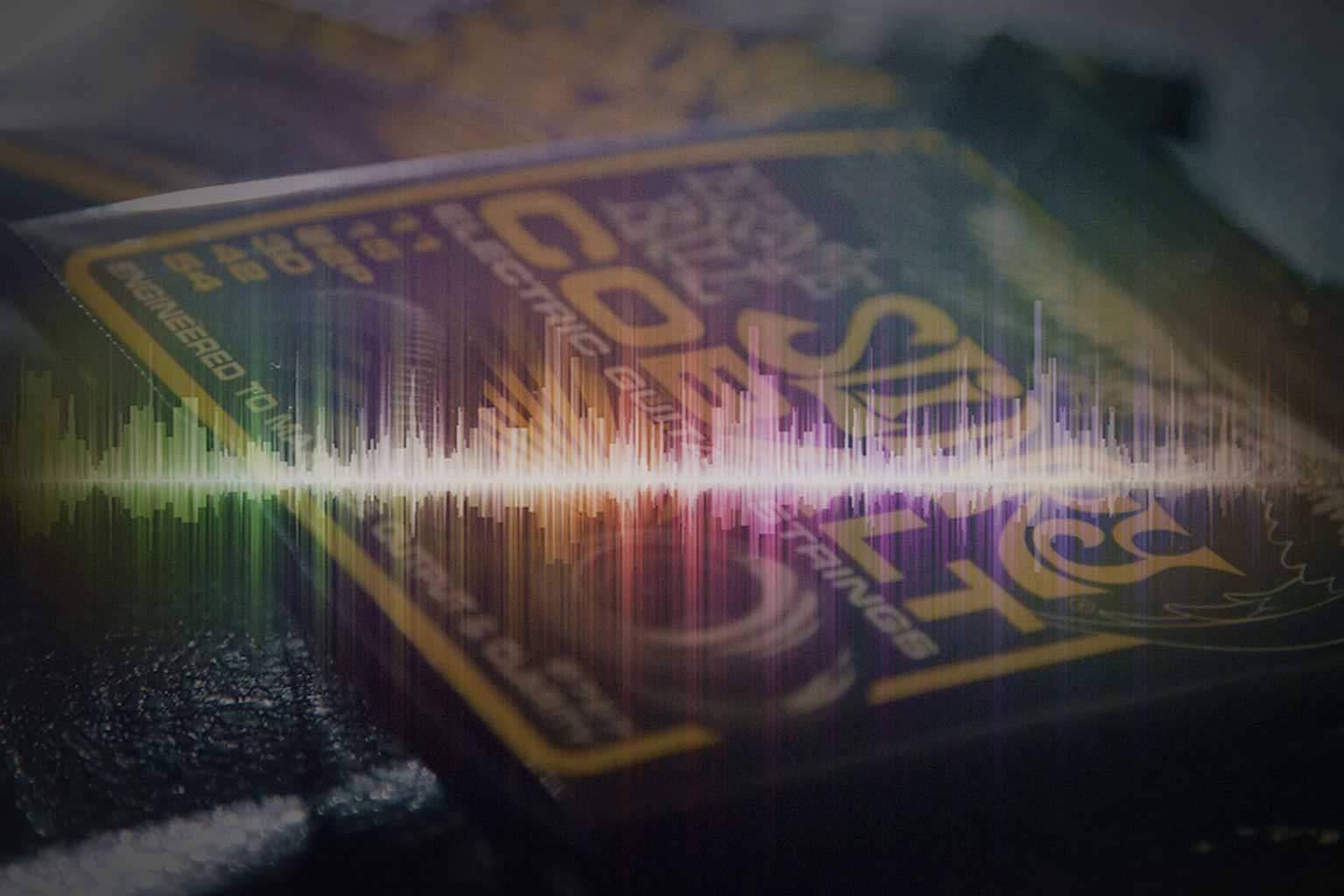Transcript
Justin:
Playing music or playing bass for me is the ultimate freedom. I've never been a great talker, which is ironic. When I play music, expressing myself is a lot easier for me playing an instrument, I think.
Justin:
When I was around six, I really started to get into my parents' records, and they had the weirdest, smallest little group of records. They weren't that into music, but what they had I'd play and listened to almost religiously. I'd get home from school and I'd put the records on. It was like a John Denver, Cat Stevens, Buddy Holly, stuff like that, Abba, and I'd like look at the covers and imagine how this music was coming out of these people.
Justin:
When I was seven years old, I was at that point where I was just trying everything. At school they had classes for stuff. Noticed there was a guitar class. I was in a room with about 20 other people all with guitars, none of whom had ever played guitar before with the teacher at the front of the class. I visually remember playing a C chord and going like, "I can do this." I guess I was hooked right after that. I obviously kept talking about it, and I got a guitar for my birthday, for my eighth birthday.
Justin:
I remember being probably around 16 or 17 and buying a pack of Ernie Ball strings purely based on the packaging and the artwork and not knowing what else to buy, and that's what I went for. When I moved out and join Tool, it was a 1995. I think Adam was already getting strings from Ernie Ball, so it just sort of happened naturally. I was like, "I need to buy some new strings, and they're like, "No, no, no, no, no." Someone made a call and I got Ernie Ball strings, and pretty amazing really that you guys have been supplying me with strings for over 20 years now. Putting fresh strings on my guitar is always a real inspiration for me. The string is that its full potential when you unwrap it and you put it on. You can hear so many harmonics in the note at that point that it's almost like there's like a choir singing. Even if you hit one note where you strum a cord, there's so much potential to follow there, so that's always a good moment to be creative when I put strings on and I start just moving around just to listen to the sound of the guitar.
Justin:
Until basically Adam and myself come up with the raw material, obviously if it's something he's got, I'll learn his riff or I'll play against it with him. But as far as coming up with stuff myself, it's normally something that just kind of comes into my head when I'm walking around and walking the dogs or whatever and my feet are kind of making the beat. I always remember running it at school as well. My breath would be, like rhythmic, and kind of what kept be going. Now I'll be walking around walking with the dogs and I'll get these rhythms in my head. If it's kind of like, "Whoa, that's pretty great," I'll actually start tapping it out with my hands and get the time of it. It's always a strange time for some reason, and then I'll leg it back up to the house and kind of try and capture it on the guitar.
Justin:
I've always been an outdoor person. I grew up on farms. When I play music, I feel freed by that. I feel very liberated by it, and able to just kind of express myself without really putting it into words. Being outdoors has that same kind of simplicity, you know? It's kind of almost like a neutral place. You don't have to feel good or bad. You just kind of, everything is just as it is, and that's really always been really inspiring for me.
Justin:
I guess writing music is hard if your head is full of waste, and maybe you have a particular type of sound that you want to go for, but if you really want to be original, there's no real recipe for that. For me, it's just about letting it come to you. If you can let your head clear out, then almost anything is available.
Justin:
Being happily successful in a band has afforded me the opportunity to choose to a certain extent where I live, so I was able to move somewhere that I've always wanted to live, which is basically the countryside. When I was a kid, I grew up in the country, I worked on farms, and I'm realizing now as an adult, that's kind of my happy place as well. The music is more of an expression of how I feel, being outside and enjoying my environment kind of feeds me, and I didn't really realize how important that was until I'd been here and I'm able to have a studio and walk around outside in a beautiful place. I've got the two combined now. It's really, really amazing.
Justin:
I've been told that the Chumash Indians used to gather here. They used to come up from the ocean and hunt here and just kind of gather in this area. There's a couple of them. It's pretty cool. You could imagine the pair of Chumash sitting here grinding out their flour. I'm sure that was some kind of music thing going on. I don't know what it would've been.
Justin:
Sitting in the studio or sitting in front of a console, it seems like that would be the obvious place to sit down and write, but it's not really the place where ideas naturally come to you.
Justin:
I love all aspects of it, but the live show is pretty massive because it combines everything. You're playing songs that you've already written, but it's different every time. You're trying to be excellent. You're trying to express emotion, you're realizing that you can play things differently each night. You make different mistakes each night. Sometimes you discover things that you wish you'd recorded on the album, like damn it. At the same time, you're entertaining people and you're seeing how all of these things have come to fruition and this is really why you're doing it. You're actually giving something to the world that you didn't really understand how to give it, and you were drawn to music. That made you feel good, but now you're playing this big show. You realize that it all makes sense. This is what you're supposed to be doing, and that makes you in turn, that really pumps you up and makes you better at it.
Justin:
I think I'm reverting back to what I started at. The initial charm of it was just listening to the instrument and going, "Wow, I can make this noise through this instrument, moving my fingers," trying to understand what I like about actually playing the instrument and listening to it again more, really listening to the different levels of sensitivity and the strings. I've got a couple of old basses and I was afraid to really try to anything else before. This works, you know? So I think I've kind of gone back to that childhood fascination with the sound and realizing that there's just so much potential still. There's just so much you can do. The idea that all the songs have been written and all the notes have been played and there's only so many notes is just bogus to me.
Justin:
Every individual is completely valid. Whatever you've got, it's yours and it's completely important. It's not important to try and be like someone else. It's important to be like yourself. If you're a musician, then it's important to play your own music. You choose whatever instrument you want, but you can do a million different things with the same instrument and just let it out. Express your own thoughts through the instrument, not someone else's. I think I've always been surprised that people liked it, which is great, but I didn't even really think one way or the other whether they would like it or not. I just was compelled to do that, you know? People supported me doing that. I was kind of backed by friends and family and other musicians. They said, "Do it. Keep doing it," so that's what I'm saying. If you've got it and you're into it, just let your own stuff out.



















